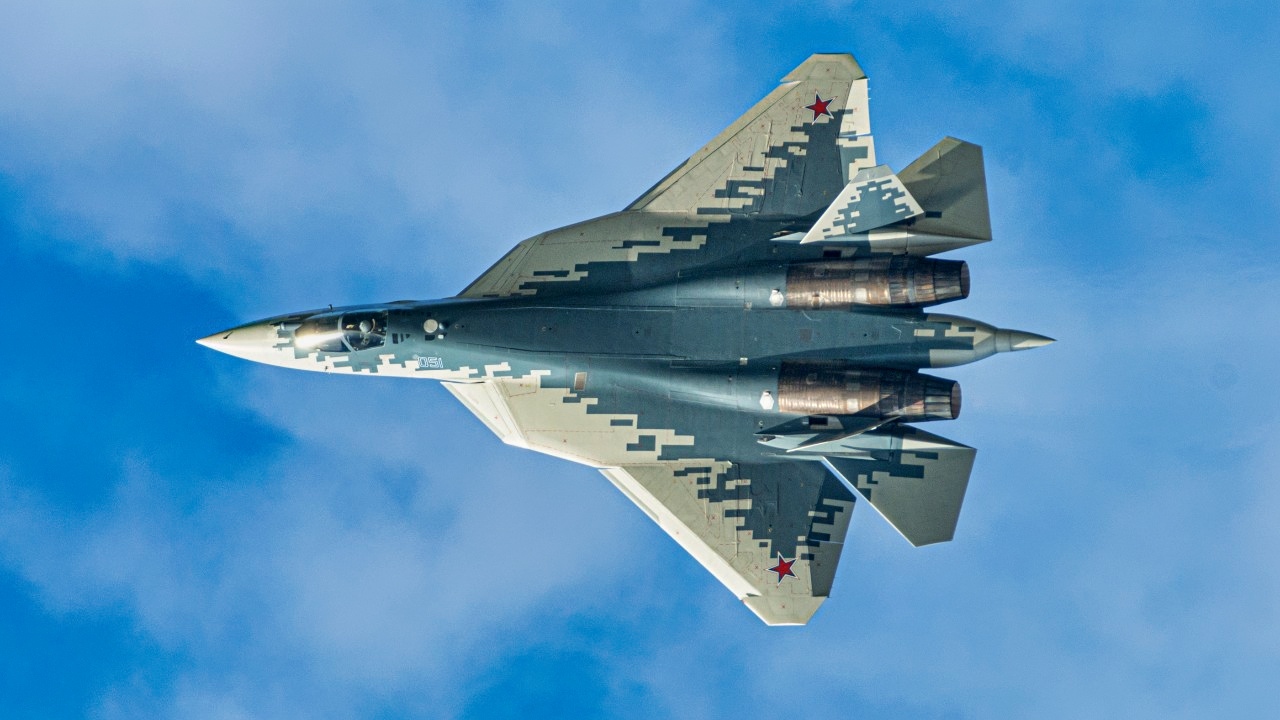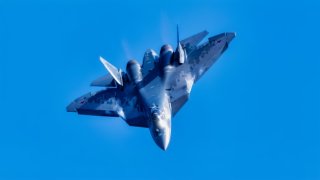Russia's Su-57 Felon Stealth Fighter Might Not Be Stealth Afterall
What You Need to Know: The Russian Su-57 "Felon" is a fifth-generation fighter jet touted by Moscow for its advanced stealth capabilities and technological innovations. Despite these claims, Western aviation experts argue that the Su-57 is overhyped and falls short of true fifth-generation standards.

-Issues include a protracted development timeline—first flying in 2010 but only entering service in 2020—and production challenges, with fewer than two dozen units built.
-Critics highlight design flaws, particularly its questionable stealth features compared to aircraft like the U.S. F-35. Additionally, the Su-57 has not been deployed over Ukraine, suggesting a lack of confidence in its capabilities. Overall, the aircraft is seen as more of an advanced fourth-generation fighter rather than a true fifth-generation platform.
The Truth About the Su-57 Felon: Delays, Design Flaws, and Deployment Issues
A short video from Russian aviation manufacturer Sukhoi was shared on social media back in March of last year.
Essentially a "sizzle reel" for its Su-57 (NATO reporting name "Felon"), the video highlights how the aircraft is pushing the limits of aviation design.
The fifth-generation fighter has long been touted by Russian officials for its "advanced" stealth technology that makes broad use of composite materials.
As previously reported, the Kremlin has further claimed the Su-57 can reach a supersonic cruising speed while destroying all types of air, ground, and naval targets.
Su-57: All Hype?
Even as Russia continues to tout the aircraft, Western aviation experts have suggested the Su-57 is all hype – and that Moscow lacks the manufacturing capabilities even to produce the aircraft in significant numbers.
That is noted by the fact that the Su-57 first flew in January 2010 but didn't enter service until December 2020.
A decade can be an eternity for "advanced" military platforms – a fact that explains why the United States Air Force is already seeking to phase out its first fifth-generation air superiority fighter, the Lockheed Martin F-22 Raptor.
Time won't be kind to the Su-57, even if it was as advanced as Russian experts may have claimed. In fact, the Su-57 shouldn't be noted for its capabilities but rather for its troubled development program.
Problems were reportedly revealed with its initial airframe, which required a redesign of the prototypes.
What Stealth?
Aviation expert Chris Bolton even noted on social media last year, "Russia's Su-57 'stealth' fighter has a radar cross-section comparable to clean F/A-18 Super Hornet, and around a thousand times bigger than F-35. Russia's fleet of Felons consists of 12 hand-made prototypes with varying degrees of finish and just two production jets…"

Other experts have also questioned whether the Felon should truly be described as a stealth aircraft and suggested in a head-to-head fight, the Su-57 would be hopelessly outclassed when going up against the Lockheed Martin F-35. The Russian fighter has a design that is much closer to an advanced fourth-generation fighter than a true fifth-generation aircraft.
It may be less detectable than an F-15 Eagle or F-16 Fighting Falcon, but the Su-57 simply has a poor cross-section compared to its main fifth-generation rivals.
Not Used in Ukraine
Those facts explain why the Kremlin hasn't deployed it over the skies of Ukraine.
Instead, at least according to most reports, its combat role has been primarily to fire weapons from within the safety of Russian airspace.
Clearly, Russian officials don't believe its stealth is good enough to send over enemy territory.
Moving past those issues, the other factor remains the numbers. Russia simply can't reach serial production and has built fewer than two dozen.
Even if it were to live up to the hype, there aren't enough Felons to make it the game-changer Moscow has claimed to be.
Simply put, the United States likely would have canceled the project several times over, but the Kremlin has seemingly dug such a deep hole its only choice now is to keep going and hope to come out on the other end.
Author Experience and Expertise
Peter Suciu is a Michigan-based writer. He has contributed to more than four dozen magazines, newspapers, and websites with over 3,200 published pieces over a twenty-year career in journalism. He regularly writes about military hardware, firearms history, cybersecurity, politics, and international affairs. Peter is also a Contributing Writer for Forbes and Clearance Jobs. You can follow him on Twitter: @PeterSuciu.
Image Credit: Creative Commons and/or Shutterstock.


